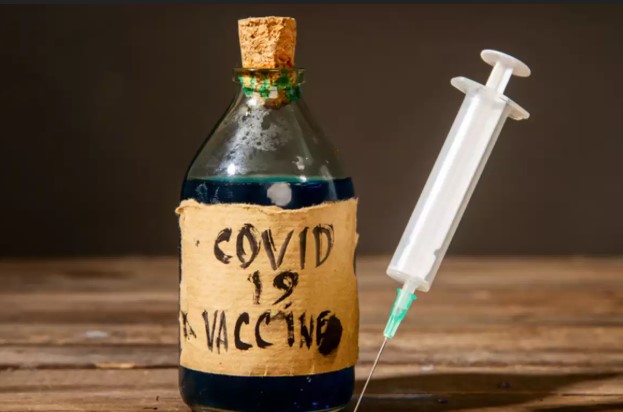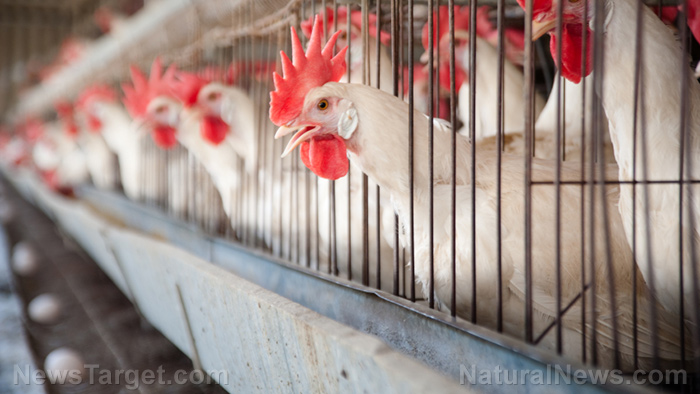 Parler
Parler Gab
Gab
- The FDA approved gene-edited pigs resistant to Porcine Reproductive and Respiratory Syndrome (PRRS), a costly virus plaguing industrial pig farms.
- CRISPR technology removes a cellular receptor to block PRRS, but critics warn the virus could mutate into more dangerous strains.
- No labeling requirements mean consumers may unknowingly eat gene-edited pork as early as next year.
- Previous gene-editing experiments have led to unintended side effects, raising concerns about food safety.
- The approval follows a pattern of regulatory secrecy, with the FDA failing to prominently disclose the decision.
The hidden cost of "disease-resistant" pork
Porcine Reproductive and Respiratory Syndrome (PRRS) has plagued pig farms for decades, causing massive economic losses. Genus, a British biotech firm, claims its CRISPR-edited pigs—engineered to lack the CD163 receptor targeted by PRRS—could be the answer. However, genetic modifications often have unintended consequences. In 2018, He Jiankui’s controversial CRISPR experiment on human embryos demonstrated the technology’s unpredictability. While pigs are not humans, similar risks exist: viruses evolve, and genetic alterations may disrupt biological functions in unforeseen ways. As one expert warned, PRRS has no simple fix—CRISPR may create new problems while solving old ones. He Jiankui’s controversial human embryo experiment He Jiankui used CRISPR to edit human embryos (targeting the CCR5 gene) to purportedly confer HIV resistance.- Unintended consequences: Off-target effects or disruptions to other genes could lead to long-term health risks.
- Ethical violations: Lack of transparency, informed consent, and regulatory oversight raised global condemnation.
- Existential risks: Germline editing (heritable changes) could have unpredictable effects on future generations.
- Viral evolution: PRRS virus could adapt, rendering the genetic fix obsolete.
- Biological disruption: Removing CD163 (a multifunctional protein) may impair immune responses or metabolic functions.
- Unintended effects: Similar to He Jiankui’s experiment, CRISPR may introduce new vulnerabilities.
The FDA’s silent approval and the labeling loophole
The FDA quietly approved gene-edited pork without public debate, burying the decision in obscure regulatory documents. Even more concerning, Genus acknowledges that no labeling is required, leaving consumers unaware if their food contains CRISPR-modified meat. The Center for Food Safety has long advocated for transparency, arguing that people deserve the right to know what they’re eating. This secrecy mirrors past failures, such as AquaBounty’s GMO salmon, which faced consumer rejection. If history repeats, gene-edited pork may enter the market unnoticed—until public backlash forces a reckoning.A dangerous precedent: Who controls our food?
The FDA’s approval of CRISPR pork sets a worrying trend, paving the way for gene-edited chickens, cattle, and other livestock with minimal oversight. Corporate interests, including Bill Gates—a major CRISPR proponent—are driving this agenda under the guise of solving food insecurity. But the lack of long-term safety studies and mandatory labeling raises ethical and health concerns. Critics warn that tampering with nature can backfire, introducing unforeseen risks to human health and ecosystems. As industrial agriculture pushes forward, food sovereignty—the right to choose what we eat—hangs in the balance.What you can do
Buy organic – USDA-certified organic products prohibit GMOs, including CRISPR-edited meat. Support local farmers – Seek out transparent, ethical meat sources that avoid genetic modifications. Demand labeling – Advocate for laws requiring clear GMO labeling so consumers can make informed choices. Reduce industrial meat consumption – Opt for pasture-raised, non-GMO, and regenerative farming options. The CRISPR food revolution is already underway, but public awareness and resistance can shape its future. The question remains: Will we accept unregulated genetic experiments in our food, or demand accountability? Sources include: NaturalHealth365.com NationalPigAssociation.co.uk TechnologyReview.comSEC charges Unicoin and top executives in massive $100M crypto securities fraud
By Cassie B. // Share
By Lance D Johnson // Share
Health Ranger demonstrates real-time reality alteration through crystallography experiments
By Finn Heartley // Share
By Lance D Johnson // Share
Government credit card scandal exposed by DoD Office of Inspector General
By Willow Tohi // Share
Public indifference to bird flu fearmongering contributes to egg price drop
By Ava Grace // Share
Governments continue to obscure COVID-19 vaccine data amid rising concerns over excess deaths
By patricklewis // Share
Tech giant Microsoft backs EXTINCTION with its support of carbon capture programs
By ramontomeydw // Share
Germany to resume arms exports to Israel despite repeated ceasefire violations
By isabelle // Share










